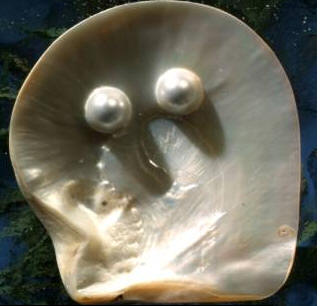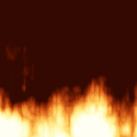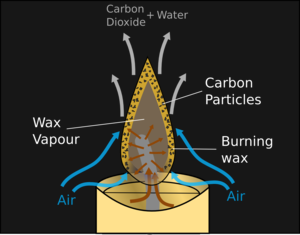Another inherent outcome of sending
beasts and animals to forests without pastor, infolded in
the Root also happens from where
![]() exits.
"Over a quarter
of all marine fish are found in reefs, and estimates of fish
productivity
suggest that
around 10% to 15% of the total worldwide catch
comes from there". [Thomas
J. Goreau; The Encyclopedia of the Environment]
exits.
"Over a quarter
of all marine fish are found in reefs, and estimates of fish
productivity
suggest that
around 10% to 15% of the total worldwide catch
comes from there". [Thomas
J. Goreau; The Encyclopedia of the Environment]
|
o Beginning is with Allah's personal name Ar'Reh'maan Who is The Fountain of Infinite Mercy. |
||||||||||||||
|
Root: م ر ج Words from this Root in the Grand Qur'aan: a) Total occurrences: 6 b) No of constructions: 4
Arabic, as is well known, is the language based on Roots, three or four consonants placed in a peculiar sequence which signify a specific and exclusive perception and signification. Words, originating from these Roots, on various well defined patterns-moulds-structuring frames, retain the original perception infolded in the Root with additional meanings and connotation, shades and colours added by the peculiar pattern-placing of vowels-syllabification, addition of consonants. The basic perception infolded in the Root, in the words of learned Ibne Faris [died 1005] is: يدلُّ على مجيءٍ وذَهابٍ واضطراب. ومَرِجَت أماناتُ القوم وعُهودُهم: اضطربت واختلطت. والمَرْج: أصلُه أرضٌ ذاتُ نباتٍ تَمْرُجُ فيها الدّوابُّ. That it leads to the perception of to and fro movement, coming and going in/and a state of excitement, uneasiness, or emotionally destabilized, agitated, commotion. That it portrays the confused and mingled up state regarding the covenants, promises, agreements and undertakings of people. Originally, it refers to a tract of land-forest abounding with plantation of all sorts where the beasts/mammals keep coming and going to pasture. Lane's Lexicon A pasture, pasturage, pasture-land, or meadow; an ample tract of land abounding with herbage, into which beasts are sent to pasture without a pastor. It, an affair and a covenant became in a confused and disturbed state so that one found it difficult to extricate himself from perplexity therein.
The Grand Qur'aan states the place where
The sending of beasts and mammals to tract of land
to pasture will naturally create a situation of their confrontation and
meeting with each other. This is built in perception in the basic
signification of this Root. The basic
perception of the Root dominates whatever the word and its textual
relationship might be. Is it also true with regard to its object
This verbal sentence is the circumstantial description of the object of verb-the two oceans. Verb: Imperfect; Third person; dual; masculine; active; Mood: Indicative evident by نِ; [Form VIII]; [الف] Subject Pronoun, in nominative state, referring back to the two oceans; مصدر-اِلْتِقَاءٌ Verbal Noun. It means, "they two are and keep mutually confronting-interface each other", reflecting same manner as two persons, beasts or mammals are in a mutually confronting state when they meet each other in the open area. The mood of the verb indicates continuity and persistence in their confronting state. But the action in the verb and signification in the Root does not end merely at confronting. The meeting and confronting each other of beasts and mammals in a place like forest, in the absence of an onlooker-the pastor, would cause emotional instability to many, and they would like to avail opportunity for advancing a step further and "mingle" with each other, the natural effect incorporated in the Root-اضطربت واختلطت . But, Allah the Exalted has not sent/set free the two Seas in the manner humans send the mammals in the tract of land to pasture without an accompanying pastor, that causes for many agitation and emotional instability for stepping further to enjoy the intermingling.
[they do confront and interface each other, but] An obstruction/barrier is invisibly placed in between the two of them. They both do not transgress/encroach each other/mingle.
This is an inverted nominal sentence and is
the further/second circumstantial description of the object of verb
They both do not transgress/encroach each other/mingle.
The presence of
And He, the Exalted has set in between two seas/oceans-reservoirs of water a bar/obstruction that keeps them separate [which does not let them join/transgress/encroach each other/mingle]. [Refer 27:61]
The beauty and sublimity of the choice of words in the Grand Qur'aan is that it not only defines and describes the perception and meanings of the Arabic Roots and words used therein but also relays the hidden realties of physical realm without compromising or undermining the original purpose of communicating the Book; alerting the humanity to be cautious of the ultimate truth and their answerability and accountability.
Therefore, which of the invisible obstructions, set by the Sustainer Lord of both of you, will you both contradict? The Oceanographers could better explain the existence of an invisible barrier/bar-a phenomenon keeping two oceans apart notwithstanding how near they might be to each other to the extent of seemingly embracing or kissing each other's boundary. We restrict ourselves to the study of perception and meanings infolded in the Root and those of words made from it and occurring in the Grand Qur'aan.
The Pearls and the Corel come forth/exit from within both aforementioned two oceans.
The best criteria, about any word occurring in Grand Qur'aan, to adjudge its Origin is to see whether or not this has, apparent or concealed, the basic characteristics, qualities, manifestation as infolded in its parent Root.
Does analysis of
Wikipedia-Coral reefs "Coral reefs are underwater structures made from calcium carbonate secreted by corals. Coral reefs are colonies of tiny living animals found in marine waters that contain few nutrients. Most coral reefs are built from stony corals, which in turn consist of polyps that cluster in groups. The polyps are like tiny sea anemones, to which they are closely related. Unlike sea anemones, coral polyps secrete hard carbonate exoskeletons which support and protect their bodies. Reefs grow best in warm, shallow, clear, sunny and agitated waters. Often called “rainforests of the sea”, coral reefs form some of the most diverse ecosystems on Earth. They occupy less than 0.1% of the world's ocean surface, about half the area of France, yet they provide a home for 25% of all marine species, including fish, mollusks, worms, crustaceans, echinoderms, sponges, tunicates and other cnidarians".
Some facts relating to area from where
Fact: Coral reefs are among the oldest ecosystems on Earth. Therefore, Allah the Exalted poses the question:
Therefore, which of the free grants of the Sustainer Lord of both of you, will you both contradict? [55:22]
[Read with
38:52] The Wives, who restrict their gaze, shall be the well-matched spouses in the life therein, [Refer 55:56]
They are in their attitudinal reflections/gaze as if they were like the Rubies and the Corel. [55:58]
It is interesting that experts even today advise
like this regarding Rubies, "When shopping
for rubies always look for color first, clarity second. When looking at
the stone it should appear bright and intensely rich. Pass
on the stones that are dull or overly dark
or overly light".
Therefore which of the delicacies of rewarding by your Sustainer Lord, will you both contradict? [55:59]
[Read with
37:49] And therein, their wives are whitish and decent natured big eyed, their semblance is like the pearls protected in the shell. [56:22-23]
The aforementioned beauties and delicacies are understandable only to those who believe in the Hereafter and are conscious and mindful of accountability. The other group of people remain in this state of mind: They keep expressing their confused state of mind, saying, "Is it that when we would have died and become dust, we will be resurrected as he proclaims?". This proposition is a far fetched, far off possibility" [50:03] Nay, the fact of the matter is that they have purposely contradicted Grand Qur'aan-the Book containing Statement of Proven Fact, when this has since brought/reached to them. Resultantly, they people are bogged down/confused in resolving the matter pregnant with agitating and disturbing import. [50:05]
This Root is source of yet
another word:
A candle is made up of a cylinder of wax, which is a fuel (often a hydrocarbon like petrol), this melts then is drawn up the wick by surface tension, it then evaporates and reacts with oxygen in the air. This reaction produces heat, carbon-dioxide and water. However, the reaction can only occur where the air meets the wax vapour. This cannot happen all the way though the flame, just around the outside. So all flames are hollow. Flame,
glowing body of mixed gases undergoing the process of combustion.
Flames generally consist of a mixture of oxygen
(or air) and another gas, usually such
combustible substances as hydrogen, carbon monoxide, or hydrocarbon. The information about the
originating raw material of Species Jinn:
Its Root is "س م م" . It leads to the perception of an inlet, a hole, vent, hollow, and other types within a thing; thereafter deriving out of that. The word itself is translated as hot-piercing air. The raw material of creation of Species Jinn has to be determined from something as part and related to the Flame indicated by the following two phrases, however, including water as essential ingredient of all created life: shaped from the fire-flame of the hot-porous-poisonous-piercing air.
shaped from a part of jouncing/fidgety/disconcerting mingling flame from fire. At the moment, for our convenience, we might consider the raw material as Plasma and leave it for experts to further investigate with reference to the perception infolded in the Roots of the words. This Species can watch us from a point/direction where we cannot see them, as informed by the Qur'aan [7:27], like the third invisible cone of flame. ..................
|



